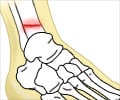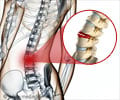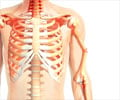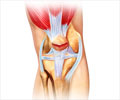
‘Women who are genetically at the highest fracture risk can enjoy the greatest protection from fracture when they use hormone therapy.’
Tweet it Now
"We found that women who are genetically at the highest fracture risk can enjoy the greatest protection from fracture when they use hormone therapy," said Heather Ochs-Balcom, associate professor of epidemiology and environmental health in UB's School of Public Health and Health Professions, who led the research team.The findings were published in the Journal of Clinical Endocrinology and Metabolism. The paper's first author, Youjin Wang, conducted the research as a doctoral candidate in epidemiology and environmental health at UB.
"This study provides a better understanding of who can benefit the most in terms of bone health from hormone therapy use," Ochs-Balcom said, adding that the results have implications for personalized medicine. "It's important information as women and their doctors make decisions about hormone therapy use."
The study, believed to be the first to investigate gene-hormone therapy interaction on fracture in postmenopausal white women, utilizes the largest set of known genes linked to fracture risk from a meta-analysis of genome-wide association studies.
Researchers looked at a subset of 9,922 women from among the more than 27,000 who had participated in WHI hormone therapy clinical trials. They wondered whether women who are more genetically susceptible to fractures could benefit from hormone therapy.
Advertisement
As women age, their bone mineral density (BMD) decreases, leaving them at greater risk of breaking bones from falling, which also increases as they age. But some women also are more genetically prone to fractures.
Advertisement
Wang notes that "further studies on gene-therapy interaction are warranted to evaluate the advantages of targeted interventions based on genetic profile." The research team is currently analyzing other gene-environment interactions and recently published another paper on the association of calcium plus vitamin D supplementation and genetic risk of fracture.
Source-Eurekalert













